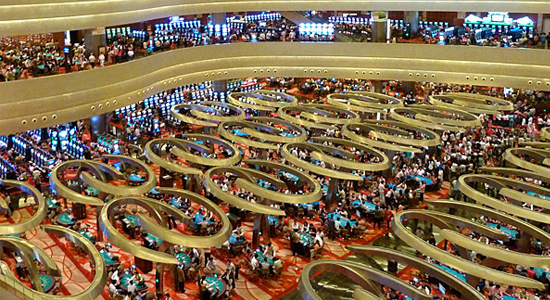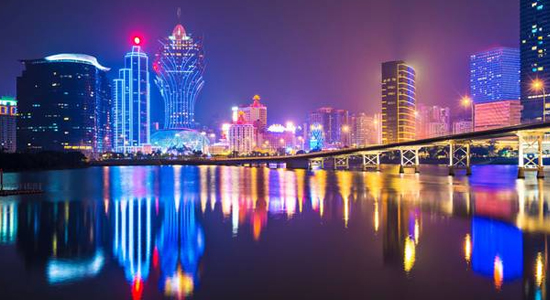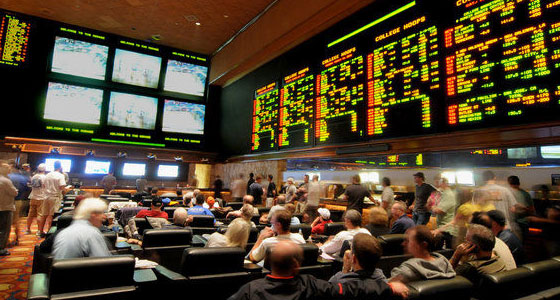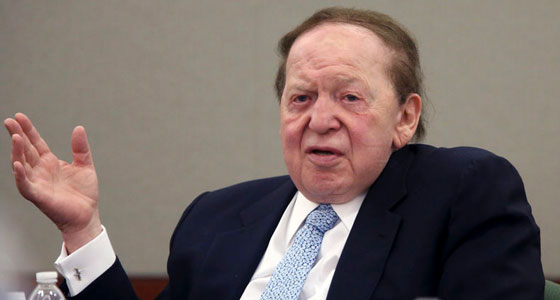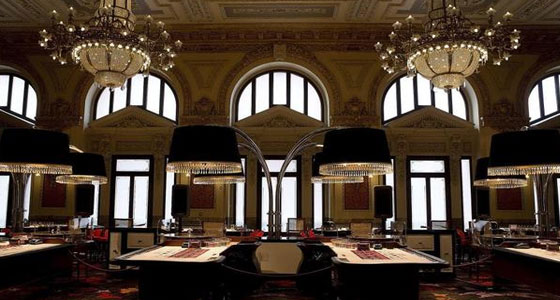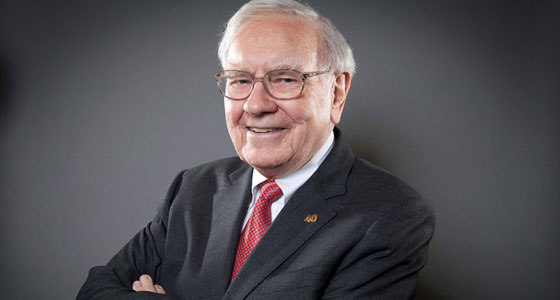Singapore Casino Revenues Sore as Chinese High-Rollers Lay Low
First, it was Macau that reported decreased gambling revenues due to a shrinking pool of big spenders, and now Singapore is dealing with the same problems.
As Chinese authorities started a campaign to crack down on corruption earlier this year, high-rollers are staying away from casinos. There are two glitzy casino resorts in the country and they both used to have special VIP tables reserved for their most loyal – and most generous – customers. Now they’re both struggling without them and things are beginning to get ugly between the two competitors.
The resorts are run by American casino operator Las Vegas Sands and Malaysia’s Genting Resorts. The former reported a 34% drop in VIP volume at its Marina Bay Sands resort, while the latter is expected to post a similarly painful slide in its third quarter financial report.
When combined, casino profits in Singapore reach $6 billion per year, and big spenders account for about half of this revenue. As gambling laws don’t allow casinos in China, players usually flee to destinations like Macau or Singapore. But in the first half of 2014, the number of Chinese visitors was down 30% to 871,000, and profits followed the same downward trend.
Business Insider: The Battle For Singapore’s Shrinking Pool Of High-Rolling Gamblers Is Getting Ugly
Casino mogul Sheldon Adelson, chief executive of Las Vegas Sands, has accused its rival of offering overly generous incentives and credit to draw high-rollers to its Resorts World Sentosa.
During a company earnings call last month, Adelson said: “Maybe one day, they will get used to competing on the basis of a quality product, if they ever build one, and they won’t have to buy the business.”
Tan Hee Teck, president of Genting Resorts, admitted that the company’s casinos in Singapore will be facing some financial difficulties during the next few months or possibly even longer.
“I suppose some operators may not want to admit it, but at least from our side, we believe that the situation will continue to be quite challenging at least for the next 6 to 12 months,” he said.
Ever since they opened in 2010, these two casinos have been reporting billion-dollar revenues, mostly based on business brought in by Chinese high-rollers, a category of players which came to be vital to the success of these gambling venues.
In a note published on October 31, Fitch Ratings wrote: “Growth in Singapore gaming revenue has stalled, and is likely to contract slightly in 2014 with macroeconomic and political factors in China being the principal cause.”
TheStar: S’pore casinos brace for battle as VIP volumes fall
The two gambling venues in Singapore have been trying to rely less on casino revenue and push to earn more from entertainment, conference facilities, hotels and shopping. But even so, gambling brings in 80% of total profits for both Las Vegas Sands and Genting Resorts. They both boast profit margins of about 50%, the highest in the casino industry.
One way to lure more foreign high-rollers to a casino is to offer credit. With Singaporean players, this strategy doesn’t work because the state has set stricter rules for locals. Sometimes casinos also use commission, a small rebate on the amount of money they’ve spent.
Terence Tay, a former general counsel for Genting Singapore who now runs a consultancy explained: “Credit checks can be very fast for some gamblers – in 15 minutes or so you can probably get approval for US$1mil, and with US$1mil you can still roll up to US$8 or US$9mil.”
This plan sometimes backfires, as credit collection can turn out to be tricky. Singaporean casinos are already waiting on hundreds of millions of dollars to be repaid by gamblers who lost huge amounts of money. And the majority of these players are based overseas, so recovering the cash is even more difficult.
For Genting, “trade and other receivables” – which represents the money owed by customers – has seen a 61% rise since June 2012. In the quarter ending July 2014, player debt stood at S$1.2 billion. Total revenue has increased 7% in the same period.
Vicky Melbourne, head of industrials for South-East Asia and Australasia ratings at Fitch said: “What’s going to be the greater challenge to the Singapore operators, and certainly more longer-term, is that across the region, there’s a lot more political momentum to legalize casinos.”
The Straits Times: Luck running out for Singapore’s two casinos?
Earlier this year, UOB Kay Hian analysts have pointed out that Singapore’s casino market reached saturation in 2012. A year before that, total gaming revenue had reached a record amount of $7.92 billion; after that, it started to decline and went down 8.3% to $7.26 billion in 2012. It wasn’t until last year that casinos have started to recover, but the rebound was modest – just 3%.
Core earnings are also stagnating, with Marina Bay Sands earnings before interest, taxes, depreciation and amortization (EBITDA) coming in at US$1.5 billion in 2013, compared to US$1.4 billion the year before. Net profit was higher during its second quarter, but VIP and mass-market business was declining.
For Genting Singapore, EBITDA dropped from $1.35 billion in 2012 to $1.15 billion in 2013. Analysts concluded the resort has reached its full growth potential. According to online gambling news, this was partially because of the local Government’s heavy regulation of the casino industry, which imposes a $100 entry fee for Singaporean players and punishes companies for marketing their services to locals.
First, it was Macau that reported decreased gambling revenues due to a shrinking pool of big spenders, and now Singapore is dealing with the same problems.
As Chinese authorities started a campaign to crack down on corruption earlier this year, high-rollers are staying away from casinos. There are two glitzy casino resorts in the country and they both used to have special VIP tables reserved for their most loyal – and most generous – customers. Now they’re both struggling without them and things are beginning to get ugly between the two competitors.
The resorts are run by American casino operator Las Vegas Sands and Malaysia’s Genting Resorts. The former reported a 34% drop in VIP volume at its Marina Bay Sands resort, while the latter is expected to post a similarly painful slide in its third quarter financial report.
When combined, casino profits in Singapore reach $6 billion per year, and big spenders account for about half of this revenue. As gambling laws don’t allow casinos in China, players usually flee to destinations like Macau or Singapore. But in the first half of 2014, the number of Chinese visitors was down 30% to 871,000, and profits followed the same downward trend.
Business Insider: The Battle For Singapore’s Shrinking Pool Of High-Rolling Gamblers Is Getting Ugly
Casino mogul Sheldon Adelson, chief executive of Las Vegas Sands, has accused its rival of offering overly generous incentives and credit to draw high-rollers to its Resorts World Sentosa.
During a company earnings call last month, Adelson said: “Maybe one day, they will get used to competing on the basis of a quality product, if they ever build one, and they won’t have to buy the business.”
Tan Hee Teck, president of Genting Resorts, admitted that the company’s casinos in Singapore will be facing some financial difficulties during the next few months or possibly even longer.
“I suppose some operators may not want to admit it, but at least from our side, we believe that the situation will continue to be quite challenging at least for the next 6 to 12 months,” he said.
Ever since they opened in 2010, these two casinos have been reporting billion-dollar revenues, mostly based on business brought in by Chinese high-rollers, a category of players which came to be vital to the success of these gambling venues.
In a note published on October 31, Fitch Ratings wrote: “Growth in Singapore gaming revenue has stalled, and is likely to contract slightly in 2014 with macroeconomic and political factors in China being the principal cause.”
TheStar: S’pore casinos brace for battle as VIP volumes fall
The two gambling venues in Singapore have been trying to rely less on casino revenue and push to earn more from entertainment, conference facilities, hotels and shopping. But even so, gambling brings in 80% of total profits for both Las Vegas Sands and Genting Resorts. They both boast profit margins of about 50%, the highest in the casino industry.
One way to lure more foreign high-rollers to a casino is to offer credit. With Singaporean players, this strategy doesn’t work because the state has set stricter rules for locals. Sometimes casinos also use commission, a small rebate on the amount of money they’ve spent.
Terence Tay, a former general counsel for Genting Singapore who now runs a consultancy explained: “Credit checks can be very fast for some gamblers – in 15 minutes or so you can probably get approval for US$1mil, and with US$1mil you can still roll up to US$8 or US$9mil.”
This plan sometimes backfires, as credit collection can turn out to be tricky. Singaporean casinos are already waiting on hundreds of millions of dollars to be repaid by gamblers who lost huge amounts of money. And the majority of these players are based overseas, so recovering the cash is even more difficult.
For Genting, “trade and other receivables” – which represents the money owed by customers – has seen a 61% rise since June 2012. In the quarter ending July 2014, player debt stood at S$1.2 billion. Total revenue has increased 7% in the same period.
Vicky Melbourne, head of industrials for South-East Asia and Australasia ratings at Fitch said: “What’s going to be the greater challenge to the Singapore operators, and certainly more longer-term, is that across the region, there’s a lot more political momentum to legalize casinos.”
The Straits Times: Luck running out for Singapore’s two casinos?
Earlier this year, UOB Kay Hian analysts have pointed out that Singapore’s casino market reached saturation in 2012. A year before that, total gaming revenue had reached a record amount of $7.92 billion; after that, it started to decline and went down 8.3% to $7.26 billion in 2012. It wasn’t until last year that casinos have started to recover, but the rebound was modest – just 3%.
Core earnings are also stagnating, with Marina Bay Sands earnings before interest, taxes, depreciation and amortization (EBITDA) coming in at US$1.5 billion in 2013, compared to US$1.4 billion the year before. Net profit was higher during its second quarter, but VIP and mass-market business was declining.
For Genting Singapore, EBITDA dropped from $1.35 billion in 2012 to $1.15 billion in 2013. Analysts concluded the resort has reached its full growth potential. According to online gambling news, this was partially because of the local Government’s heavy regulation of the casino industry, which imposes a $100 entry fee for Singaporean players and punishes companies for marketing their services to locals.
Macau Reports Most Painful Revenue Drop Since 2005
Macau has had a few rough months during and after the World Cup in Brazil, but its streak of bad luck reached its peak in October.
When June reports showed a 3.7% year-on-year drop, industry experts blamed it on the World Cup sports betting craze and said things would pick up. Then revenues came in at just $3.6 billion in July, showing a 3.6% drop from the same period last year and they said Macau needs a bit more time to get back on track.
But as Chinese authorities continue their crackdown on casino corruption, an initiative which scared away a number of VIP customers, things have gotten serious. In October, total casino revenue fell by 23.2% in October compared to the same month of 2013.
The city’s gaming authority said total revenue was at 28 billion Macau patacas ($3.5 billion) this October, marking Macau’s worst financial performance since the gambling hub started recording such data in 2005.
Despite its recent downward trend, Macau continues to be the world’s largest gambling centre, way ahead of Las Vegas. The bad news is that the region relies heavily on casino revenue –mostly on the money spent by high-rollers – which seems to be on the decline. Moreover, it’s the only area where China allows casinos, a type of entertainment otherwise forbidden under the country’s gambling laws.
Reuters: Macau Oct gaming revenues fall 23 pct, drop worst on record
October was the worst month for Macau’s casinos and the fifth consecutive month of declines. Industry representatives blame it on China’s passive war on corruption, as well as on a decline in the number of tourists and a general slowing of economic growth, which makes people spend less on gambling.
“It is worse in October than it was before October,” Steve Wynn, chief executive of Wynn Macau, told a recent earnings call. “I don’t know if it is a squall or if we are in the rainy season, or how long it will last, but we are still very bullish on Macau.”
The American casino developer has started construction on another Macau project – a $4 billion integrated resort, which includes a lake and air-conditioned gondolas.
According to online gambling news, about 80% of Macau’s revenues rely on gambling, but China’s two-year anti-corruption battle has taken its toll on the local casino industry. Big spenders are now avoiding the area and choosing other destinations where they can freely spend their money. Profits from VIP customers accounted for just 56% of total revenues in the third quarter, which was a new low for Macau.
Las Vegas Sands chief Sheldon Adelson said these trends are cyclical. “It is only a matter of time before the cycle reverses itself. No one has ever suggested that the behavior of Chinese and Asian people, which has been established over a 3,000-year history, is going to change.”
Wall Street Journal: Macau Gambling-Revenue Drop Divides Investors
Making smart investments in casino stocks used to be pretty simple. Investors would just choose those companies that had bigger exposure in Macau, knowing that those were the names with the best prospects. Things have changed now that Macau has had its fifth straight month of revenue declines.
Hong Kong-based Central Asset Investments portfolio manager Armand Yeung said: “We were short. Now we’re just staying away from it.” Though valuations have become more reasonable and dividend yields are attractive, “there’s still a lot of debate”, he added.
When an analyst casino magnate Steve Wynn if he thought things were getting worse in Macau, he replied: “Oh, well, that’s an easy question. It’s worse in October than it was before October. So if you’re asking what is the nadir of our experience, it is current.”
Wynn added that Beijing’s efforts to combat corruption in Macau “has put a lot of the wealthy businessmen in the fox holes.”
Credit analysts are expressing concerns about Macau expansion plans, claiming that casinos will not be able to repay their debts if the slowdown in revenue continues.
Forbes: Macau Casino Revenue Falls, VIPs Blamed, Investors Rejoice
Figures released by the Gaming Inspection and Coordination Bureau showed a 3.7% decline in year-on-year revenue in June, with profits dropping to 27.2 billion Macau patacas or $3.4 billion. Industry representatives claim it was caused by a 20% drop in VIP attendance.
This was the first time when Macau’s monthly revenue fell since June 2009, which marked a low point for the city’s casino sector. Union Gaming Research Macau analysts Grant Govertsen and Felicity Chiang pointed out that from the decline in 2009, “Macau went on an unprecedented run [with] tripling of GGR from approximately US$15 billion in 2009 to US$45 billion in 2013.”
Between 2008 and 2009, Macau’s problem was mainly a matter of politics, with an overlay of economic factors. It could be the same this time around, as the 20% drop in VIP revenue is believed to be caused by President Xi Jinping’s anti-corruption campaign in China.
On the other hand, a report released by Morgan Stanley Asia in June cited economic factors from the mainland, while others blamed it on the World Cup, which Union Gaming conceded “could be responsible for a few hundred basis points of the VIP decline.”
Macau has had a few rough months during and after the World Cup in Brazil, but its streak of bad luck reached its peak in October.
When June reports showed a 3.7% year-on-year drop, industry experts blamed it on the World Cup sports betting craze and said things would pick up. Then revenues came in at just $3.6 billion in July, showing a 3.6% drop from the same period last year and they said Macau needs a bit more time to get back on track.
But as Chinese authorities continue their crackdown on casino corruption, an initiative which scared away a number of VIP customers, things have gotten serious. In October, total casino revenue fell by 23.2% in October compared to the same month of 2013.
The city’s gaming authority said total revenue was at 28 billion Macau patacas ($3.5 billion) this October, marking Macau’s worst financial performance since the gambling hub started recording such data in 2005.
Despite its recent downward trend, Macau continues to be the world’s largest gambling centre, way ahead of Las Vegas. The bad news is that the region relies heavily on casino revenue –mostly on the money spent by high-rollers – which seems to be on the decline. Moreover, it’s the only area where China allows casinos, a type of entertainment otherwise forbidden under the country’s gambling laws.
Reuters: Macau Oct gaming revenues fall 23 pct, drop worst on record
October was the worst month for Macau’s casinos and the fifth consecutive month of declines. Industry representatives blame it on China’s passive war on corruption, as well as on a decline in the number of tourists and a general slowing of economic growth, which makes people spend less on gambling.
“It is worse in October than it was before October,” Steve Wynn, chief executive of Wynn Macau, told a recent earnings call. “I don’t know if it is a squall or if we are in the rainy season, or how long it will last, but we are still very bullish on Macau.”
The American casino developer has started construction on another Macau project – a $4 billion integrated resort, which includes a lake and air-conditioned gondolas.
According to online gambling news, about 80% of Macau’s revenues rely on gambling, but China’s two-year anti-corruption battle has taken its toll on the local casino industry. Big spenders are now avoiding the area and choosing other destinations where they can freely spend their money. Profits from VIP customers accounted for just 56% of total revenues in the third quarter, which was a new low for Macau.
Las Vegas Sands chief Sheldon Adelson said these trends are cyclical. “It is only a matter of time before the cycle reverses itself. No one has ever suggested that the behavior of Chinese and Asian people, which has been established over a 3,000-year history, is going to change.”
Wall Street Journal: Macau Gambling-Revenue Drop Divides Investors
Making smart investments in casino stocks used to be pretty simple. Investors would just choose those companies that had bigger exposure in Macau, knowing that those were the names with the best prospects. Things have changed now that Macau has had its fifth straight month of revenue declines.
Hong Kong-based Central Asset Investments portfolio manager Armand Yeung said: “We were short. Now we’re just staying away from it.” Though valuations have become more reasonable and dividend yields are attractive, “there’s still a lot of debate”, he added.
When an analyst casino magnate Steve Wynn if he thought things were getting worse in Macau, he replied: “Oh, well, that’s an easy question. It’s worse in October than it was before October. So if you’re asking what is the nadir of our experience, it is current.”
Wynn added that Beijing’s efforts to combat corruption in Macau “has put a lot of the wealthy businessmen in the fox holes.”
Credit analysts are expressing concerns about Macau expansion plans, claiming that casinos will not be able to repay their debts if the slowdown in revenue continues.
Forbes: Macau Casino Revenue Falls, VIPs Blamed, Investors Rejoice
Figures released by the Gaming Inspection and Coordination Bureau showed a 3.7% decline in year-on-year revenue in June, with profits dropping to 27.2 billion Macau patacas or $3.4 billion. Industry representatives claim it was caused by a 20% drop in VIP attendance.
This was the first time when Macau’s monthly revenue fell since June 2009, which marked a low point for the city’s casino sector. Union Gaming Research Macau analysts Grant Govertsen and Felicity Chiang pointed out that from the decline in 2009, “Macau went on an unprecedented run [with] tripling of GGR from approximately US$15 billion in 2009 to US$45 billion in 2013.”
Between 2008 and 2009, Macau’s problem was mainly a matter of politics, with an overlay of economic factors. It could be the same this time around, as the 20% drop in VIP revenue is believed to be caused by President Xi Jinping’s anti-corruption campaign in China.
On the other hand, a report released by Morgan Stanley Asia in June cited economic factors from the mainland, while others blamed it on the World Cup, which Union Gaming conceded “could be responsible for a few hundred basis points of the VIP decline.”
The week in pictures: October 21st- 27th, 2014

There wasn’t a dull moment last week as big events rolled across the global headlines so lets take a look back and who did what and where
Radicalized Canadian, Michael Zehaf-Bibeau, opened fire with an automatic rifle at the National War Memorial in Ottawa, Canada, killing one of the ceremonial guards on duty. The self-styled one-man jihad then took possession of a motor vehicle at gunpoint and, pursued by police, drove to the Parliament building where upon he ran inside shooting randomly as he went. He was cornered, rushed, shot and killed by security staff leaving Canada in a state of shock.
Shock didn’t seem to be much in evidence as Oscar Pistorius was sentenced to five years in jail by Judge Thokozile Masipa for the killing of his girlfriend, Reeva Steenkamp, in their bathroom on February 14th 2013. Found guilty of “culpable homicide” and also of discharging a firearm in public (a separate incident) the para-Olympians faced a suspended 3 year sentence even once his five years are served, although he’s expected to spend only around 10 months in custody.
Kaci Hickox, on the other hand, will have to spend three weeks in custody of the state of New Jersey after the Ebola hysteria reached new heights of stupidity in the US. The nurse who had been treating victims in West Africa is the first to suffer the human rights abuse that is the mandatory quarantine isolation period despite testing negative for the virus and displaying no symptoms whatsoever because in America freedom isn’t a right unless you’re rich.
And talking of rich, the Queen of England decided to get with the program and sent her first tweet. Despite having had an account for some time this was the first time she, instead of palace staff, had sent one out, in this case noting the opening of a new exhibition at London’s Science Museum that focuses on the information age and the changes it has wrought upon us all. She was a little overly polite and verbose but she’ll get the hang of it.
In sport, of course, it was a week of high drama with Serena Williams beating Simona Halep to win her fifth WTA finals and end the year as world number one for the fourth time, will the Men’s WTA Finals be as superb a competition to watch and wager on? Keep track on our daily news pages, but whilst we wait for them to sort that out lets take a look back at some of the pictures and stories that made our headlines last week.
1. Two distinguished ladies at the top of South Africa’s National Gaming Board have been suspended due to accusations of corruption, abuse of power and an impressive number of illegalities, which they rewarded themselves for with a 46% pay rise.
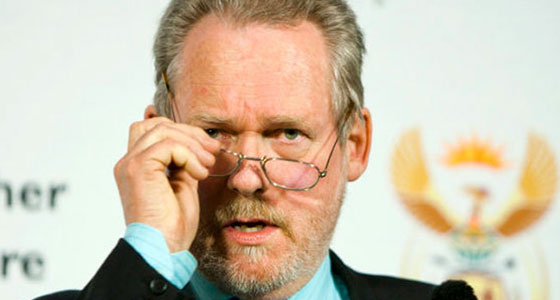
2. Battle of the attorneys – the fate of sports betting in New Jersey is now in the hands of Judge Michael A. Shipp, and it looks like this boat is sinking.
3. Sheldon Adelson has bought a lot of political influence over the years, but some still see through his attempts to fight for the “moral good” by banning online gambling.
4. The illegal betting bomb dropped on the Indian Premier League in 2013 is about to explode, as the police will soon present its findings. The next court hearing is scheduled for November 10.
5. Some of you still think that wearing a lucky hat to the next baseball game will help you win a bet; but experts have facts, information and math on their side.
6. Two casino operators have opened gambling venues in the center of Madrid, and now visitors have a chance to play in fancy new Spanish poker rooms. Olé!
7. Warren Buffett has placed his bet on the 2016 US Presidential Elections: Hillary Clinton will run and win.
Meanwhile Nazi war criminals have been living on US social security benefits in Europe having been bribed to leave US jurisdiction, and a Google Executive, one Alan Eustace, plummeted to the ground from 135,000ft leaving only some critics of the internet giant disappointed because he was wearing a parachute and setting a new world skydiving record. Will anything else drop out of the sky unexpectedly? You better read our GamblingResults’ news pages, just in case.



There wasn’t a dull moment last week as big events rolled across the global headlines so lets take a look back and who did what and where
Radicalized Canadian, Michael Zehaf-Bibeau, opened fire with an automatic rifle at the National War Memorial in Ottawa, Canada, killing one of the ceremonial guards on duty. The self-styled one-man jihad then took possession of a motor vehicle at gunpoint and, pursued by police, drove to the Parliament building where upon he ran inside shooting randomly as he went. He was cornered, rushed, shot and killed by security staff leaving Canada in a state of shock.
Shock didn’t seem to be much in evidence as Oscar Pistorius was sentenced to five years in jail by Judge Thokozile Masipa for the killing of his girlfriend, Reeva Steenkamp, in their bathroom on February 14th 2013. Found guilty of “culpable homicide” and also of discharging a firearm in public (a separate incident) the para-Olympians faced a suspended 3 year sentence even once his five years are served, although he’s expected to spend only around 10 months in custody.
Kaci Hickox, on the other hand, will have to spend three weeks in custody of the state of New Jersey after the Ebola hysteria reached new heights of stupidity in the US. The nurse who had been treating victims in West Africa is the first to suffer the human rights abuse that is the mandatory quarantine isolation period despite testing negative for the virus and displaying no symptoms whatsoever because in America freedom isn’t a right unless you’re rich.
And talking of rich, the Queen of England decided to get with the program and sent her first tweet. Despite having had an account for some time this was the first time she, instead of palace staff, had sent one out, in this case noting the opening of a new exhibition at London’s Science Museum that focuses on the information age and the changes it has wrought upon us all. She was a little overly polite and verbose but she’ll get the hang of it.
In sport, of course, it was a week of high drama with Serena Williams beating Simona Halep to win her fifth WTA finals and end the year as world number one for the fourth time, will the Men’s WTA Finals be as superb a competition to watch and wager on? Keep track on our daily news pages, but whilst we wait for them to sort that out lets take a look back at some of the pictures and stories that made our headlines last week.
1. Two distinguished ladies at the top of South Africa’s National Gaming Board have been suspended due to accusations of corruption, abuse of power and an impressive number of illegalities, which they rewarded themselves for with a 46% pay rise.

2. Battle of the attorneys – the fate of sports betting in New Jersey is now in the hands of Judge Michael A. Shipp, and it looks like this boat is sinking.
3. Sheldon Adelson has bought a lot of political influence over the years, but some still see through his attempts to fight for the “moral good” by banning online gambling.
4. The illegal betting bomb dropped on the Indian Premier League in 2013 is about to explode, as the police will soon present its findings. The next court hearing is scheduled for November 10.
5. Some of you still think that wearing a lucky hat to the next baseball game will help you win a bet; but experts have facts, information and math on their side.
6. Two casino operators have opened gambling venues in the center of Madrid, and now visitors have a chance to play in fancy new Spanish poker rooms. Olé!
7. Warren Buffett has placed his bet on the 2016 US Presidential Elections: Hillary Clinton will run and win.
Meanwhile Nazi war criminals have been living on US social security benefits in Europe having been bribed to leave US jurisdiction, and a Google Executive, one Alan Eustace, plummeted to the ground from 135,000ft leaving only some critics of the internet giant disappointed because he was wearing a parachute and setting a new world skydiving record. Will anything else drop out of the sky unexpectedly? You better read our GamblingResults’ news pages, just in case.


Telford Speaks Out against Sheldon’s Political Influence
Adelson has managed to turn many politicians against online gambling, but supporters of the virtual industry are not giving up.
The battle over internet gambling in the US continues. While opponents of online casinos are becoming louder and more aggressive, Erik Telford, senior vice president at the Franklin Center for Government and Public Integrity in the United States, has expressed concerns about the influence industry representatives seem to have on politicians.
A few days ago, Telford made his voice heard too and came out strongly against casino mogul Sheldon Adelson’s political influence, in his bid to put an end to most forms of online gambling in the US. “When powerful gaming interests are spearheading the fight to ban online gambling, it should give you pause,” he wrote in an opinion piece published in the political newspaper The Hill.
CEO of Sands Vegas, Sheldon Adelson is one of the largest campaign contributors in America. With elections being held this year, several politicians have withdrawn their support for the online casino industry just to get on the billionaire’s good side.
“Their main policy objective is focused on federal legislation to ban online gambling outright – stifling their competition before it ever reaches the market. It is a glimpse of crony capitalism in its most naked form, and represents a very troubling assault on Internet freedom, giving government a foot in the door for a broader regulatory regime and usurping our federalist system,” Telford warned.
The Hill: Ending the cycle of casino cronyism
Online gambling news revealed that, in his campaign to restore the 2011 Wire Act, the casino mogul has drawn Sen. Lindsey Graham and Representative Jason Chaffetz on his side. But Telford characterized this as “a pretense to advance a moral good”, adding that “this policy would undermine the free market, encourage crime, and erode the constitutional concept of states’ rights.”
Telford quoted free market advocates, who believe that a regulated market would help protect players from fraud and concluded: “Just like Prohibition in the 1920’s, banning this vice would actually incentivize criminal behavior. Those fearful of fraud, child participation, and profits diverted to gangs or terrorists should push for legalization in every state to make the industry as transparent as possible.”
In a letter sent to US congressmen, representatives of the Institute For Policy Innovation wrote: “In this black market, where virtually all sites are operated from abroad, consumers have little to no protection from predatory behavior.”
At the end of his article, Telford reminded readers that legalizing this “multibillion dollar business” would make things more transparent, allowing authorities to verify industry revenues, as well as to profit from tax revenue.
Vegas Inc: At G2E, Sheldon Adelson reiterates disdain for Internet gambling
Billionaire casino mogul Sheldon Adelson continued his crusade against online gambling at this year’s Global Gaming Expo (G2E), telling those present at the trade show that internet casinos make it easy for underage users to play because “when you’re on the Internet, you cannot know your customer.”
Roger Gros, publisher of Global Gaming Business, defended the online gambling industry, claiming that the internet allows operators to authenticate players’ identities. When hearing the argument that internet gambling should be legal because it already happens, Sheldon replied: “Then why don’t we legalize prostitution? Why don’t we legalize cocaine and heroin? That’s not a good reason, to say that they’re doing it anyway.”
Soon after Nevada, New Jersey and Delaware legalized online casino games, other states started to talk about doing the same thing. Adelson then set up the Coalition to Stop Internet Gambling, a nonprofit organization dedicated to outlawing the business once and for all.
The casino mogul wants US gambling laws to completely ban online casino games and often argues that he fears online gaming will exploit the poor by making gambling too accessible.
“I don’t want those people to get abused because when I look at people like that I see the faces of my parents,” he said in his speech. “I just don’t see that there is any compelling reason to put an electronic casino in 318 million hands.”
iGamingPlayer: New Jersey Assembly Committee Opposes Federal Online Gaming Ban
As one of the three states that have already legalized online gambling, New Jersey is trying to send out a message to Congress, urging officials to reject a federal ban on internet casinos. The industry is already established in Nevada, New Jersey and Delaware, and other states have announced their intentions to join them in opening the market.
A resolution from Assemblyman Vincent Mazzeo, who represents Atlantic City, says such a ban would not only damage New Jersey’s casino industry, but also infringe on its state’s rights.
“A federal prohibition against internet gaming would directly and negatively impact New Jersey by dismantling the investments that the state and Atlantic City casinos have already made to implement and regulate Internet gaming, taking away the economic and employment opportunities already realized by the state and its residents, and foreclosing the future potential of internet gaming to generate tens of millions of dollars in tax revenue, create high-tech software jobs, and foster valuable business ventures for Atlantic City casinos in this State,” it said.
“Internet gaming has begun to yield benefits for our state’s economy, over $80 million has been wagered, and that’s generating sorely needed tax revenue that’s serving as a stimulus for Atlantic City at this critical time,” Mazzeo explained in his statement.
While fully aware that the industry hasn’t reached its full potential, officials believe a federal ban would have a negative impact, rendering a number of investments useless and taking away millions of dollars in tax revenue.
The resolution opposes the “Restoration of America’s Wire Act” bill strongly backed by Sheldon Adelson, which is now before both houses of Congress.
Adelson has managed to turn many politicians against online gambling, but supporters of the virtual industry are not giving up.
The battle over internet gambling in the US continues. While opponents of online casinos are becoming louder and more aggressive, Erik Telford, senior vice president at the Franklin Center for Government and Public Integrity in the United States, has expressed concerns about the influence industry representatives seem to have on politicians.
A few days ago, Telford made his voice heard too and came out strongly against casino mogul Sheldon Adelson’s political influence, in his bid to put an end to most forms of online gambling in the US. “When powerful gaming interests are spearheading the fight to ban online gambling, it should give you pause,” he wrote in an opinion piece published in the political newspaper The Hill.
CEO of Sands Vegas, Sheldon Adelson is one of the largest campaign contributors in America. With elections being held this year, several politicians have withdrawn their support for the online casino industry just to get on the billionaire’s good side.
“Their main policy objective is focused on federal legislation to ban online gambling outright – stifling their competition before it ever reaches the market. It is a glimpse of crony capitalism in its most naked form, and represents a very troubling assault on Internet freedom, giving government a foot in the door for a broader regulatory regime and usurping our federalist system,” Telford warned.
The Hill: Ending the cycle of casino cronyism
Online gambling news revealed that, in his campaign to restore the 2011 Wire Act, the casino mogul has drawn Sen. Lindsey Graham and Representative Jason Chaffetz on his side. But Telford characterized this as “a pretense to advance a moral good”, adding that “this policy would undermine the free market, encourage crime, and erode the constitutional concept of states’ rights.”
Telford quoted free market advocates, who believe that a regulated market would help protect players from fraud and concluded: “Just like Prohibition in the 1920’s, banning this vice would actually incentivize criminal behavior. Those fearful of fraud, child participation, and profits diverted to gangs or terrorists should push for legalization in every state to make the industry as transparent as possible.”
In a letter sent to US congressmen, representatives of the Institute For Policy Innovation wrote: “In this black market, where virtually all sites are operated from abroad, consumers have little to no protection from predatory behavior.”
At the end of his article, Telford reminded readers that legalizing this “multibillion dollar business” would make things more transparent, allowing authorities to verify industry revenues, as well as to profit from tax revenue.
Vegas Inc: At G2E, Sheldon Adelson reiterates disdain for Internet gambling
Billionaire casino mogul Sheldon Adelson continued his crusade against online gambling at this year’s Global Gaming Expo (G2E), telling those present at the trade show that internet casinos make it easy for underage users to play because “when you’re on the Internet, you cannot know your customer.”
Roger Gros, publisher of Global Gaming Business, defended the online gambling industry, claiming that the internet allows operators to authenticate players’ identities. When hearing the argument that internet gambling should be legal because it already happens, Sheldon replied: “Then why don’t we legalize prostitution? Why don’t we legalize cocaine and heroin? That’s not a good reason, to say that they’re doing it anyway.”
Soon after Nevada, New Jersey and Delaware legalized online casino games, other states started to talk about doing the same thing. Adelson then set up the Coalition to Stop Internet Gambling, a nonprofit organization dedicated to outlawing the business once and for all.
The casino mogul wants US gambling laws to completely ban online casino games and often argues that he fears online gaming will exploit the poor by making gambling too accessible.
“I don’t want those people to get abused because when I look at people like that I see the faces of my parents,” he said in his speech. “I just don’t see that there is any compelling reason to put an electronic casino in 318 million hands.”
iGamingPlayer: New Jersey Assembly Committee Opposes Federal Online Gaming Ban
As one of the three states that have already legalized online gambling, New Jersey is trying to send out a message to Congress, urging officials to reject a federal ban on internet casinos. The industry is already established in Nevada, New Jersey and Delaware, and other states have announced their intentions to join them in opening the market.
A resolution from Assemblyman Vincent Mazzeo, who represents Atlantic City, says such a ban would not only damage New Jersey’s casino industry, but also infringe on its state’s rights.
“A federal prohibition against internet gaming would directly and negatively impact New Jersey by dismantling the investments that the state and Atlantic City casinos have already made to implement and regulate Internet gaming, taking away the economic and employment opportunities already realized by the state and its residents, and foreclosing the future potential of internet gaming to generate tens of millions of dollars in tax revenue, create high-tech software jobs, and foster valuable business ventures for Atlantic City casinos in this State,” it said.
“Internet gaming has begun to yield benefits for our state’s economy, over $80 million has been wagered, and that’s generating sorely needed tax revenue that’s serving as a stimulus for Atlantic City at this critical time,” Mazzeo explained in his statement.
While fully aware that the industry hasn’t reached its full potential, officials believe a federal ban would have a negative impact, rendering a number of investments useless and taking away millions of dollars in tax revenue.
The resolution opposes the “Restoration of America’s Wire Act” bill strongly backed by Sheldon Adelson, which is now before both houses of Congress.
Japan’s Casino Bill Up for Discussion, but with Limits for Local Players
Supporters of casino gambling in Japan have agreed to consider imposing limits for local players.
After a very long debate, Japanese lawmakers are finally ready to agree on the details of the country’s new gambling laws. Politicians have long said they were considering following Singapore’s model, a state which allows casinos, but makes them off-limits for locals. This is seen as a solution to protect citizens from the potential harms of problem gambling and addiction, while at the same time making profits from a flourishing industry.
Politicians fighting for the legalization of casino games in Japan have had a lot of pressure to deal with from opponents, who threatened to block the entire process unless similar limits were set for locals. They said in order for the new regulations to pass, it was essential that lawmakers address the issue of problem gambling.
The revision would boost chances that the bill will be passed this year as proponents hope, although it is not yet clear whether enough anti-casino lawmakers will be persuaded to provide the support it needs in both houses of parliament.
Analysts have predicted that the Japanese gambling market would be worth tens of billions of dollars a year and local authorities are hoping the newly-opened industry will help revive and boost the economy. But experts added that these figures are based on the participation of Japanese players too, and without them casino resorts would struggle to make a profit.
Reuters: Japan lawmakers say open to limits on casinos in push for bill’s passage
The Japanese Parliament is expected to discuss the matter the next week. According to online gambling news, adopting the legislation would be an essential first step to unlocking a highly profitable gambling market. Amendments have been proposed to the draft bill, which was shown to reporters on Thursday.
“The government, for the purpose of preventing the negative effects of casino facilities by non-foreign visitors, will take necessary measures regarding admittance and capacity…,” said the amended section to the bill.
If the revised regulations pass, gambling venues will be limited to tourists. Japanese media wrote casino supporters might accept these terms, to make sure the law passes. But while Prime Minister Shinzo Abe is hoping that casinos will boost the economy, researchers say these businesses will struggle without Japanese players.
Sheldon Adelson, chief operating executive of Las Vegas Sands Corp said: “From our standpoint, I will say that we will not be interested in Japan or any other country on a foreigners-only basis. We can’t do that. Our business model won’t allow it.”
The Diplomat: Casinos and Japan’s Gambling Addiction
Pachinko parlors have been very popular in Japan for a long time now. These businesses make an estimated $187 billion every year, making them the most profitable leisure activity in the country.
Pachinko is considered to be “gaming” not gambling, but the Japanese are known to be huge fans of all forms of betting, which is why US investors are pushing for politicians to lift the ban and adopt new legislation favoring casinos.
Under the country’s current laws, playing pachinko for money is illegal. While parlors are not allowed to hand out cash, they have managed to find a loophole. Once players gather enough silver balls, they are allowed to trade them in for a “special prize,” usually consisting in small things like candy or a cigarette lighter. But when they leave the venue, winners can exchange their prizes for cash.
A recent government survey revealed that nearly five million people show signs that they might be addicted to gambling. The number represents almost 5% of the country’s adult population. Besides pachinko, players have the option to bet on horse racing, bicycles and speedboats, and these activities are perfectly legal.
Prime Minister Shinzo Abe is hoping to boost tourism by legalizing casino gambling in the country, but authorities will have to come up with a policy to minimize the negative impact of gambling. Given how problematic addiction has become, introducing casino games in addition to pachinko could be a risky move.
GamingZion: Government Task Force to Help Speed up Casino Projects in Japan
The Japanese Government doesn’t have too much time to get the country’s casino industry going, so the administration has announced it was going to set up a special task force to help push things forward. Prime Minister Shinzo Abe has promised to legalize casino gambling a long time ago, as part of a reform to revive the local economy.
The casino bill has been stuck in the Diet for several months, but the administration is hoping that the new task force will help hasten the process. Some believe the initiative was meant to show foreign investors that the Government is dedicated to the cause.
Major American gambling companies said they were willing to spend billions of dollars to build resorts in Japan, once the casino bill passes. However, things need to move forward fast, in order to get everything ready for the 2020 Tokyo Olympics. If politicians don’t hurry up with the new legislation, they might miss out on billion-dollar investments.
Supporters of casino gambling in Japan have agreed to consider imposing limits for local players.
After a very long debate, Japanese lawmakers are finally ready to agree on the details of the country’s new gambling laws. Politicians have long said they were considering following Singapore’s model, a state which allows casinos, but makes them off-limits for locals. This is seen as a solution to protect citizens from the potential harms of problem gambling and addiction, while at the same time making profits from a flourishing industry.
Politicians fighting for the legalization of casino games in Japan have had a lot of pressure to deal with from opponents, who threatened to block the entire process unless similar limits were set for locals. They said in order for the new regulations to pass, it was essential that lawmakers address the issue of problem gambling.
The revision would boost chances that the bill will be passed this year as proponents hope, although it is not yet clear whether enough anti-casino lawmakers will be persuaded to provide the support it needs in both houses of parliament.
Analysts have predicted that the Japanese gambling market would be worth tens of billions of dollars a year and local authorities are hoping the newly-opened industry will help revive and boost the economy. But experts added that these figures are based on the participation of Japanese players too, and without them casino resorts would struggle to make a profit.
Reuters: Japan lawmakers say open to limits on casinos in push for bill’s passage
The Japanese Parliament is expected to discuss the matter the next week. According to online gambling news, adopting the legislation would be an essential first step to unlocking a highly profitable gambling market. Amendments have been proposed to the draft bill, which was shown to reporters on Thursday.
“The government, for the purpose of preventing the negative effects of casino facilities by non-foreign visitors, will take necessary measures regarding admittance and capacity…,” said the amended section to the bill.
If the revised regulations pass, gambling venues will be limited to tourists. Japanese media wrote casino supporters might accept these terms, to make sure the law passes. But while Prime Minister Shinzo Abe is hoping that casinos will boost the economy, researchers say these businesses will struggle without Japanese players.
Sheldon Adelson, chief operating executive of Las Vegas Sands Corp said: “From our standpoint, I will say that we will not be interested in Japan or any other country on a foreigners-only basis. We can’t do that. Our business model won’t allow it.”
The Diplomat: Casinos and Japan’s Gambling Addiction
Pachinko parlors have been very popular in Japan for a long time now. These businesses make an estimated $187 billion every year, making them the most profitable leisure activity in the country.
Pachinko is considered to be “gaming” not gambling, but the Japanese are known to be huge fans of all forms of betting, which is why US investors are pushing for politicians to lift the ban and adopt new legislation favoring casinos.
Under the country’s current laws, playing pachinko for money is illegal. While parlors are not allowed to hand out cash, they have managed to find a loophole. Once players gather enough silver balls, they are allowed to trade them in for a “special prize,” usually consisting in small things like candy or a cigarette lighter. But when they leave the venue, winners can exchange their prizes for cash.
A recent government survey revealed that nearly five million people show signs that they might be addicted to gambling. The number represents almost 5% of the country’s adult population. Besides pachinko, players have the option to bet on horse racing, bicycles and speedboats, and these activities are perfectly legal.
Prime Minister Shinzo Abe is hoping to boost tourism by legalizing casino gambling in the country, but authorities will have to come up with a policy to minimize the negative impact of gambling. Given how problematic addiction has become, introducing casino games in addition to pachinko could be a risky move.
GamingZion: Government Task Force to Help Speed up Casino Projects in Japan
The Japanese Government doesn’t have too much time to get the country’s casino industry going, so the administration has announced it was going to set up a special task force to help push things forward. Prime Minister Shinzo Abe has promised to legalize casino gambling a long time ago, as part of a reform to revive the local economy.
The casino bill has been stuck in the Diet for several months, but the administration is hoping that the new task force will help hasten the process. Some believe the initiative was meant to show foreign investors that the Government is dedicated to the cause.
Major American gambling companies said they were willing to spend billions of dollars to build resorts in Japan, once the casino bill passes. However, things need to move forward fast, in order to get everything ready for the 2020 Tokyo Olympics. If politicians don’t hurry up with the new legislation, they might miss out on billion-dollar investments.
Japan: A Future Promised Land for Casinos

The gambling industry is one that continues to blossom exponentially. Originally, Las Vegas was considered to be the gambling capital of the world. Macau passed it in popularity after just a few short years and Japan is starting to look like a promising venture for some of the world’s larger gambling operations.
The Street: Las Vegas Sands Bets on Japan
Las Vegas Sands plans on expanding its Macau-based Sands China into Japan, which it predicts could become Asia’s largest gaming market. Sands has already been approach by local gaming firms in Japan.
Gaming is still week in the U.S. and Macau has been the focus of casino operators. In the first quarter Sands Macau, which has three casinos in the Chinese gambling enclave, saw its profit quadruple to $110.5 million from $26.7 million just one year ago.
Revenue at Sands China shot up 24% to $944 million from $761.7 million in the year-ago period. Overall, Macau posted a record 70% surge in gaming revenue in April to $1.76 billion. And it appears the gambling hub could be on track for another record month.
Casino operators aren’t just limiting their Asian expansion to Macau. Last month, Sands opened the first part of its $5.5 billion hotel-casino in Singapore. The company expects the Singapore casino could earn $1 billion annually. MGM has also said that it is looking into other gaming markets, including Vietnam.
Reuters: Sands China bets on Japan; sees strong Q2
Macau-based Sands China, the world’s second-most valuable casino operator, has its sights on expanding into Japan, which it predicts could become Asia’s largest gambling market.
Expanding in Asia beyond Macau has become important for casino operators such as Sands and Wynn Resorts, which worry about Beijing’s erratic travel restrictions on mainland Chinese visiting Macau, the only place in the country where casino gambling is legal.
Japan has long debated legalizing casino gambling and could make a decision soon as it looks to the example of Singapore, which recently opened two major casino resorts. Sands China’s parent Las Vegas Sands opened its $5.5 billion Singapore casino resort, the world’ second-most expensive, late last month.
Japan has made slow progress on allowing casinos, partly due to fears they could trigger social problems.
If Japan moves to legalise casino gambling, the first casino could open by around 2014-15, said Jacobs, who was chief executive of an international management services firm before he joined Las Vegas Sands in March last year.
Channel News Asia: Marina Bay Sands targeting Southeast Asian market
The $5.5 billion Marina Bay Sands integrated resort is betting its chips on the Southeast Asian market. The region is expected to account for over a third of its business in Singapore, according to Sheldon Adelson, the
chairman of its parent company Las Vegas Sands.
He said the company is also considering building integrated resorts in Europe and Japan.
The Marina Bay Sands resort, which was partially opened on Tuesday, April 27, is expected to break even in just 5 years.
Marina Bay Sands will be targeting primary markets like Malaysia, Indonesia, Thailand, Vietnam and Singapore. Combined, these countries will make up some 40 per cent of Marina Bay Sands’ business (10 per cent each from Malaysia, Indonesia and Thailand; and 8 per cent from Vietnam). China will account for about 6 per cent of its business.
Adelson added: “Asia could use 5 or 10 Las Vegases fully built out with 140,000 rooms each. That would give you from 700,000 to 1.4 million rooms for destination resorts for people all over Asia to go to. And in my opinion, you will never saturate the market.

The gambling industry is one that continues to blossom exponentially. Originally, Las Vegas was considered to be the gambling capital of the world. Macau passed it in popularity after just a few short years and Japan is starting to look like a promising venture for some of the world’s larger gambling operations.
The Street: Las Vegas Sands Bets on Japan
Las Vegas Sands plans on expanding its Macau-based Sands China into Japan, which it predicts could become Asia’s largest gaming market. Sands has already been approach by local gaming firms in Japan.
Gaming is still week in the U.S. and Macau has been the focus of casino operators. In the first quarter Sands Macau, which has three casinos in the Chinese gambling enclave, saw its profit quadruple to $110.5 million from $26.7 million just one year ago.
Revenue at Sands China shot up 24% to $944 million from $761.7 million in the year-ago period. Overall, Macau posted a record 70% surge in gaming revenue in April to $1.76 billion. And it appears the gambling hub could be on track for another record month.
Casino operators aren’t just limiting their Asian expansion to Macau. Last month, Sands opened the first part of its $5.5 billion hotel-casino in Singapore. The company expects the Singapore casino could earn $1 billion annually. MGM has also said that it is looking into other gaming markets, including Vietnam.
Reuters: Sands China bets on Japan; sees strong Q2
Macau-based Sands China, the world’s second-most valuable casino operator, has its sights on expanding into Japan, which it predicts could become Asia’s largest gambling market.
Expanding in Asia beyond Macau has become important for casino operators such as Sands and Wynn Resorts, which worry about Beijing’s erratic travel restrictions on mainland Chinese visiting Macau, the only place in the country where casino gambling is legal.
Japan has long debated legalizing casino gambling and could make a decision soon as it looks to the example of Singapore, which recently opened two major casino resorts. Sands China’s parent Las Vegas Sands opened its $5.5 billion Singapore casino resort, the world’ second-most expensive, late last month.
Japan has made slow progress on allowing casinos, partly due to fears they could trigger social problems.
If Japan moves to legalise casino gambling, the first casino could open by around 2014-15, said Jacobs, who was chief executive of an international management services firm before he joined Las Vegas Sands in March last year.
Channel News Asia: Marina Bay Sands targeting Southeast Asian market
The $5.5 billion Marina Bay Sands integrated resort is betting its chips on the Southeast Asian market. The region is expected to account for over a third of its business in Singapore, according to Sheldon Adelson, the
chairman of its parent company Las Vegas Sands.
He said the company is also considering building integrated resorts in Europe and Japan.
The Marina Bay Sands resort, which was partially opened on Tuesday, April 27, is expected to break even in just 5 years.
Marina Bay Sands will be targeting primary markets like Malaysia, Indonesia, Thailand, Vietnam and Singapore. Combined, these countries will make up some 40 per cent of Marina Bay Sands’ business (10 per cent each from Malaysia, Indonesia and Thailand; and 8 per cent from Vietnam). China will account for about 6 per cent of its business.
Adelson added: “Asia could use 5 or 10 Las Vegases fully built out with 140,000 rooms each. That would give you from 700,000 to 1.4 million rooms for destination resorts for people all over Asia to go to. And in my opinion, you will never saturate the market.

